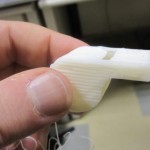The federal Stark law prohibits physicians from referring Medicaid or Medicare patients to businesses in which the physician holds an interest. The law includes hospitals as well as clinical laboratory services, physical therapy services, occupational therapy, radiology, MRIs, CAT scans, prosthetics, home health services, outpatient prescription drugs, and outpatient hospital services. Critics have long argued that physician self referrals (where doctors refer patients to hospitals in which they have an interest or a structured compensation arrangement) are a blatant conflict of interest.
Penalties for Stark law violations are severe but there are no whistleblower compensation provisions. Given that the medical profession has a reputation for protecting doctors, there have been few incentives for whistleblowers to come forward. A recent decision from a Tampa federal court may change everything.
Barbara Schubert was the former operations manager of Pediatric Physician Services, Inc. (PPS). PPS is affiliated with All Children’s Hospital in St.Petersburg, Florida. The hospital allegedly set up a compensation plan for new doctors that paid them in part for referrals to the hospital. The doctors that referred the most patients were paid more. Although that caused PPS to lose money, the hospital profited from the patients that were seen at the hospital.
The alleged benefit to the doctors here was indirect but the court ruled that such a compensation arrangement can still qualify as a Stark Amendment violation. The hospital argued that the compensation paid to the doctors was simply the fair market value for their services.
Whereas the Stark law has long applied to Medicare, only recently has the law been amended to include Medicaid. Medicaid is a bit stickier from a false claims act perspective since that program is a joint effort between the states and federal government. The court wasn’t sidetracked, however. “The natural and foreseeable consequence of submitting a false claim [to Medicaid] is that the United States will provide funds to pay the false claim.”
We know of many hospitals that give incentive payments to doctors. The concept is sound but only if the doctors are rewarded for quality work. Paying doctors based on how many people they refer to the hospital is a recipe for overbilling and increased health care costs.
As this Florida case and other very recent decisions become better known, we expect many whistleblowers will come forward. Under the federal false claims act, whistleblowers are entitled to a percentage of whatever the government collects. The typical award is 20% although the court can award up to 30%. That means if a whistleblower actions nets the government $3 million (an average recovery), the whistleblower (called a relator) can expect $600,000 for his or her efforts.
With Medicaid violations, whistleblowers may be eligible for a second award payment from the state!
To qualify for an award, whistleblowers must have original source information about fraud to a taxpayer funded program. For a Stark law violation, whistleblowers must also show that the hospital or physician was treating Medicaid or Medicare patients and that there was an illegal referral relationship.
If you think you qualify as a whistleblower, give us a call. Our whistleblower lawyers have helped people across the United States stop fraud and collect the maximum possible award. Currently we represent the whistleblower in the largest pending false claims act case against a bank or lender anywhere in the U.S.; HUD’s $2.4 billion complaint against Allied Home Mortgage.
Obviously not all cases have losses in the billions of dollars but the U.S. government is very interested in pursuing false claims act cases. Medicare fraud cases are an especially hot topic these days. To learn if you may qualify for a whistleblower claim, contact attorney Brian Mahany at or by telephone at (direct). All inquiries are kept in strict confidence.
Post by Brian Mahany, Esq.


